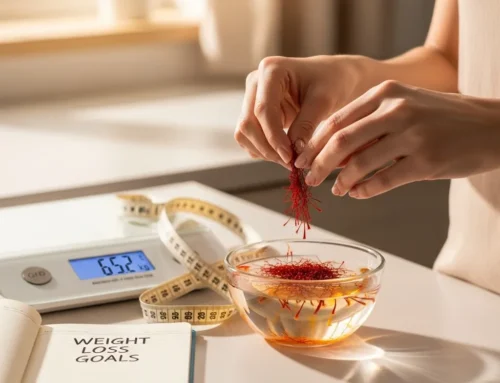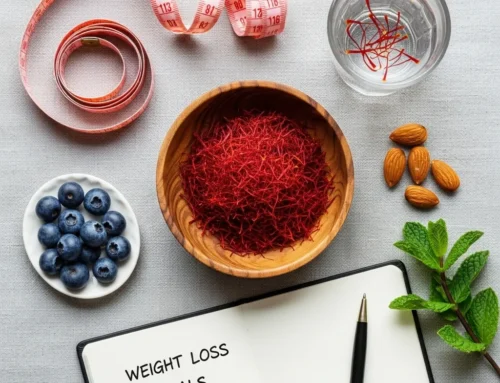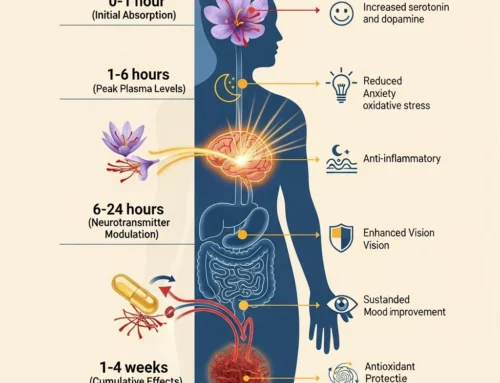Saffron, derived from the Crocus sativus flower, is the world’s most expensive spice. It adds flavor, fragrance, and a golden hue to various dishes, desserts, and beverages. Known for its vivid color and aroma, saffron enhances the taste and appearance of foods.
Table of Contents:
- Buying Saffron Online
- Saffron Health Risks
- Fake Saffron
- How to Store Saffron
- Excessive Saffron Consumption
- Long-Term Use of Saffron
- Saffron Sensitivity
- Combining Saffron with Other Spices
- Saffron for Heart Patients
- Saffron for Pregnant Women
- Miscarriage and Saffron
Saffron Health Benefits
Saffron has many medicinal and health-related properties. Experts recommend it for treating a variety of physical and mental health issues. Despite its pleasant aroma, saffron has a rather bitter taste. The compounds in saffron stimulate the nerves, and its calming effect aids sleep. Additionally, saffron promotes a sense of well-being and energy.
One of the most appealing benefits of saffron today is its weight loss properties. Consuming saffron induces a feeling of satiety, reducing the urge to eat more. This process helps break down fat and promotes weight loss. Saffron tea is an ideal drink for those seeking to curb their appetite.
Saffron Health Risks
Saffron Health Benefits
While saffron is beneficial in many ways, excessive consumption can lead to negative side effects. This magical spice has severe side effects when misused. For instance, consuming more than 5 milligrams per dose can cause symptoms such as food poisoning, diarrhea, yellowing of the skin, nosebleeds, numbness of lips and eyelids, and even death in extreme cases.
Fake Saffron
Fake saffron is often mixed with non-standard dyes and preservatives, which can be harmful to consumers. The only way to avoid the harmful effects of fake saffron is by purchasing it from reputable sellers. Spotting fake saffron can be challenging, so ensure you buy from trusted sources.
How to Store Saffron
Storing saffron properly is crucial for maintaining its quality. Incorrect storage can lead to the loss of its beneficial properties. Environmental factors like temperature and humidity affect the spice’s quality, so store saffron in a cool, dark place. Saffron contains safranal, a compound with antiseptic properties, but when consumed in excess, it can be toxic.
Excessive Saffron Consumption
Although saffron has numerous health benefits, consuming too much can lead to harm. Even when buying authentic saffron, excessive intake can cause more harm than good. Symptoms of saffron overdose include nausea, vomiting, and dizziness. Moderation is key.
Long-Term Use of Saffron
Some people believe consuming small amounts of saffron over a long period is safe, but this isn’t necessarily true. Extended use of saffron, particularly in supplements for weight loss, should be monitored carefully. It’s advisable to consult with a healthcare professional before using saffron for long periods, especially in supplement form.
Saffron Sensitivity
Some individuals may experience allergic reactions to saffron. Common symptoms include headaches, anxiety, dry mouth, and nausea. If you notice any of these symptoms, stop using saffron immediately and consult a doctor.
Combining Saffron with Other Spices
Saffron is sometimes combined with other spices like cinnamon, honey, or berries to create new flavors. While these combinations are often harmless, they can cause allergic reactions in sensitive individuals. Always check with a healthcare provider before trying new spice combinations.
Saffron for Heart Patients
Saffron Health Benefits
Saffron is known to benefit heart health, including regulating blood pressure and improving blood circulation. It contains essential nutrients like manganese, iron, and vitamin C, which support cardiovascular health. However, overconsumption can lead to irregular heart rhythms, so it’s essential to use saffron under medical supervision, especially for individuals with heart conditions.
Saffron Health Benefits for Pregnant Women
Pregnant women should avoid consuming large amounts of saffron, as it may cause complications. Excessive saffron intake during pregnancy can lead to side effects such as miscarriage, nausea, and other health risks. Always consult with a doctor before including saffron in your diet during pregnancy.
Miscarriage and Saffron Health Benefits
Excessive saffron intake during pregnancy is linked to a risk of miscarriage. Women should be cautious and limit their consumption, particularly in the first trimester. If any unusual symptoms arise after consuming saffron, seek medical attention immediately.








Get Social